Grants and Funding for Commercialization in 2026
Accelerate Your Growth with Available Financial Support
Commercialization grants allow Canadian businesses to accelerate their growth by accessing strategic funds. They support commercialization and export efforts to better compete in local and international markets.
785 opportunities available

Grant and FundingClosed
PSCE – Component 2
Non-repayable funding to support SMEs’ export market diversification
Eligible Funding
- Maximum amount : 60,000 $
- Up to 50% of project cost
Eligible Industries
- Manufacturing
- Wholesale trade
- Transportation and warehousing
- Information and cultural industries
Types of eligible projects
Commercialization
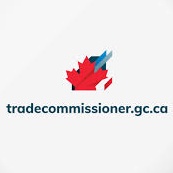
Grant and FundingOpenClosing Soon
CanExport GAC-Led Delegations
Cost-sharing support for SMEs joining GAC-led trade delegations
Eligible Funding
- Maximum amount : 100,000 $
- Up to 50% of project cost
Eligible Industries
- Public administration
Types of eligible projects
Commercialization

Grant and FundingOpen
SCALE AI — Acceleration
Supports Canadian AI startups and SMEs focused on value chains
Eligible Funding
- Maximum amount : 50,000 $
Eligible Industries
- Manufacturing
- Transportation and warehousing
- Professional, scientific and technical services
Types of eligible projects
CommercializationArtificial Intelligence (AI)Innovation

Tax CreditsOpen
Research, Innovation and Commercialization Tax Credit (CRIC)
Refundable tax credit for Quebec business R&D and precommercialization
Eligible Funding
- From $50,000 to $1,000,000
- Up to 30% of project cost
Eligible Industries
- Manufacturing
- Professional, scientific and technical services
Types of eligible projects
CommercializationTechnologyInnovation

Grant and FundingOpen
Support for biofood exports - individual projects
SEB supports Quebec agri-food market expansion outside Quebec
Eligible Funding
- From $15,000 to $100,000
- Up to 50% of project cost
Eligible Industries
- Agriculture, forestry, fishing and hunting
- Manufacturing
Types of eligible projects
Commercialization

Grant and FundingOpen
Manitoba — Export Development Program (EDP)
Supports Manitoba SMEs to expand exports through trade events
Eligible Funding
- From $2,000 to $30,000
- Up to 50% of project cost
Eligible Industries
- All industries
Types of eligible projects
Commercialization

Partnering and CollaborationGrant and FundingClosed
NGen — AI For Manufacturing Challenge (AI4M)
Funding for collaborative AI-driven advanced manufacturing projects in Canada
Eligible Funding
- From $1,500,000 to $3,200,000
- Up to 40% of project cost
Eligible Industries
- Manufacturing
Types of eligible projects
CommercializationArtificial Intelligence (AI)TechnologyInnovationDigital Transformation

Grant and FundingSuspended
Individual Market Access Support (SIAM)
Market Access Support for Quebec Food Processors
Eligible Funding
- From $10,000 to $100,000
- Up to 50% of project cost
Eligible Industries
- Manufacturing
Types of eligible projects
Commercialization

Loans and Capital investmentsOpenClosing Soon
Financing to respond to the offensive of new tariffs and for initiatives for resilient and exporting companies (FRONTIERE)
Supports Québec exporters impacted by new U.S. tariffs
Eligible Funding
- Maximum amount : 50,000,000 $
- Up to 25% of project cost
Eligible Industries
- Agriculture, forestry, fishing and hunting
- Mining, quarrying, and oil and gas extraction
- Manufacturing
Types of eligible projects
Commercialization

Expert AdviceLoans and Capital investmentsOpen
Panorama Program
Supports export diversification with financial services and expert guidance
Eligible Funding
- From $250,000 to $1,000,000
Eligible Industries
- Agriculture, forestry, fishing and hunting
- Manufacturing
Types of eligible projects
Commercialization

Grant and FundingClosed
Creative Export Canada (CEC) — Export-Ready Stream
Funding for Canadian creative industry exports
Eligible Funding
- Maximum amount : 2,500,000 $
- Up to 75% of project cost
Eligible Industries
- Information and cultural industries
- Arts, entertainment and recreation
Types of eligible projects
Commercialization

Grant and FundingOpen
Export and cultural visibility support program
Financing for Quebec cultural exports
Eligible Funding
- Maximum amount : 160,000 $
- Up to 50% of project cost
Eligible Industries
- Information and cultural industries
Types of eligible projects
Commercialization

Researchers And FacilitiesPartnering and CollaborationWage Subsidies And InternsOpen
Mitacs Accelerate
Connect organizations with academia for research and innovation collaboration
Eligible Funding
- From $7,500 to $15,000
Eligible Industries
- Professional, scientific and technical services
- Educational services
- Health care and social assistance
Types of eligible projects
CommercializationHuman ResourcesInnovation

Grant and FundingClosed
Program to support the development of agriculture and agri-food in the regions
Support program for regional agriculture and agri-food development
Eligible Funding
- No Condition
Eligible Industries
- Agriculture, forestry, fishing and hunting
Types of eligible projects
CommercializationHuman ResourcesInnovation

Grant and FundingOpen
Mitacs Accelerate International
Funding to collaborate with international researchers
Eligible Funding
- From $15,000 to $15,000
- Up to 50% of project cost
Eligible Industries
- All industries
Types of eligible projects
CommercializationHuman ResourcesInnovation

Grant and FundingOpening Soon
International outreach — Travel
Empower Canadian artists and arts organizations to expand global connections and opportunities
Eligible Funding
- Maximum amount : 30,000 $
Eligible Industries
- Arts, entertainment and recreation
Types of eligible projects
Commercialization

Tax CreditsOpen
Tax holiday for a new business created to commercialize intellectual property
Tax credit for commercialization of intellectual property (IP) in Quebec
Eligible Funding
- No Condition
Eligible Industries
- Manufacturing
- Information and cultural industries
- Educational services
Types of eligible projects
Commercialization

Grant and FundingOpen
CanExport SMEs
Supports Canadian SMEs’ export activities in new international markets
Eligible Funding
- From $10,000 to $50,000
- Up to 50% of project cost
Eligible Industries
- All industries
Types of eligible projects
Commercialization

Expert AdviceOpen
NRC IRAP Support for Intellectual Property
IP Advisory services for your innovations
Eligible Funding
- No Condition
Eligible Industries
- All industries
Types of eligible projects
Commercialization

Grant and FundingClosed
Creative Export Canada (CEC) — Export Development Stream (EDS)
Canadian Creative Export supports global market expansion for creative industries
Eligible Funding
- From $15,000 to $90,000
- Up to 75% of project cost
Eligible Industries
- Arts, entertainment and recreation
Types of eligible projects
Commercialization

Eligible Funding
- From $3,000 to $90,000
Eligible Industries
- Information and cultural industries
- Arts, entertainment and recreation
Types of eligible projects
Commercialization

Grant and FundingOpening Soon
PSCE – Component 1
Supports Quebec businesses in strategic supply chain integration
Eligible Funding
- From $25,000 to $250,000
- Up to 50% of project cost
Eligible Industries
- All industries
Types of eligible projects
CommercializationInnovation

Grant and FundingClosed
NovaScience Program — Support for the position of innovation and commercialization manager
Ministère de l'économie, de l'innovation et de l'énergie du Québec (MEIE), Government of Canada, Gouvernment of Québec
NovaScience fund supports creating innovation and commercialization roles
Eligible Funding
- Maximum amount : 75,000 $
- Up to 50% of project cost
Eligible Industries
- Professional, scientific and technical services
Types of eligible projects
CommercializationInnovation

Grant and FundingOpen
Canada Pavilion Program
Supports Canadian exporters at major international food trade shows
Eligible Funding
- No Condition
Eligible Industries
- Agriculture, forestry, fishing and hunting
Types of eligible projects
Commercialization

Eligible Funding
- No Condition
Eligible Industries
- Manufacturing
- Information and cultural industries
- Professional, scientific and technical services
Types of eligible projects
Commercialization
Discover how much grant funding is available for your business
Subsidize your projects with grants!
Use our free grant estimator to quickly identify the available grant amounts for which your company may be eligible.

Grant and FundingClosed
REGI — Business Scale-up and Productivity (BSP) - Northern Ontario
Funds to accelerate business growth in Northern Ontario
Eligible Funding
- Maximum amount : 500,000 $
- Up to 50% of project cost
Eligible Industries
- Manufacturing
- Professional, scientific and technical services
Types of eligible projects
CommercializationTechnologyInnovation

Grant and FundingOpen
AgriAssurance Program – National Industry Association Component
Supports industry-led assurance systems for Canadian agriculture exports
Eligible Funding
- Maximum amount : 1,000,000 $
- Up to 75% of project cost
Eligible Industries
- Agriculture, forestry, fishing and hunting
Types of eligible projects
CommercializationEnvironment and ClimateInnovation

Eligible Funding
- No Condition
Eligible Industries
- All industries
Types of eligible projects
CommercializationTechnologyInnovation

Grant and FundingOpen
Protein Industries Canada — Technology Leadership
Funding for collaborative projects on plant protein
Eligible Funding
- Up to 45% of project cost
Eligible Industries
- Agriculture, forestry, fishing and hunting
- Manufacturing
Types of eligible projects
CommercializationTechnologyInnovation

Grant and FundingClosed
PADAAR — Measure 4021 – Promotion of regional products
Supports regional agri-food promotion and consumer awareness initiatives
Eligible Funding
- Maximum amount : 50,000 $
- Up to 50% of project cost
Eligible Industries
- Agriculture, forestry, fishing and hunting
Types of eligible projects
Commercialization

Grant and FundingOpening Soon
PSCE – Component 3
Support for Large Enterprises in Their Structural Projects on International Markets
Eligible Funding
- Maximum amount : 100,000 $
- Up to 50% of project cost
Eligible Industries
- All industries
Types of eligible projects
Commercialization

Grant and FundingOpen
AgriInnovate Program
Repayable contributions for agri-sector innovation projects
Eligible Funding
- Maximum amount : 5,000,000 $
- Up to 60% of project cost
Eligible Industries
- Agriculture, forestry, fishing and hunting
Types of eligible projects
CommercializationTechnologyInnovation

Grant and FundingOpening Soon
Arts Across Canada — Representation and Promotion
Travel funds for incorporated arts organizations
Eligible Funding
- Maximum amount : 30,000 $
Eligible Industries
- Arts, entertainment and recreation
Types of eligible projects
Commercialization

Grant and FundingOpening Soon
Strategic Funds and Initiatives — Market Access Strategy
Funds for official-language minority community artists
Eligible Funding
- Maximum amount : 60,000 $
Eligible Industries
- Information and cultural industries
- Arts, entertainment and recreation
Types of eligible projects
Commercialization

Grant and FundingOpen
Canadian Agricultural Strategic Priorities Program
Funding for agriculture and agri-food industry support organizations
Eligible Funding
- Maximum amount : 1,000,000 $
- Up to 50% of project cost
Eligible Industries
- Agriculture, forestry, fishing and hunting
Types of eligible projects
CommercializationTechnologyEnvironment and ClimateInnovation

Grant and FundingOpening Soon
MEDTEQ+ — AVISÉ program
Funding for validation and evaluation of innovative health technologies
Eligible Funding
- Maximum amount : 700,000 $
- Up to 50% of project cost
Eligible Industries
- Professional, scientific and technical services
- Health care and social assistance
Types of eligible projects
CommercializationArtificial Intelligence (AI)TechnologyInnovation

Loans and Capital investmentsOpen
REGI — Business Scale-up and Productivity — CED (QC) – Private sector
Financing to accelerate growth in Quebec
Eligible Funding
- Up to 50% of project cost
Eligible Industries
- All industries
Types of eligible projects
CommercializationInnovationDigital Transformation

Other SupportExpert AdviceSuspended
Offensive Tr@ns Num
Accelerating business growth through strategic innovation coaching
Eligible Funding
- Maximum amount : 25,000 $
- Up to 50% of project cost
Eligible Industries
- Manufacturing
Types of eligible projects
CommercializationTechnologyInnovation

Tax CreditsOpen
Incentive deduction for the commercialization of innovations (IDCI)
Reduced tax rate for Quebec-based commercialization of innovations
Eligible Funding
- Up to 83% of project cost
Eligible Industries
- Agriculture, forestry, fishing and hunting
- Manufacturing
- Information and cultural industries
- Professional, scientific and technical services
Types of eligible projects
CommercializationInnovation

Grant and FundingOpen
Subsidy for universal access to businesses
The PAAC aids retailers in making their buildings accessible to customers with limited mobility.
Eligible Funding
- Maximum amount : 40,000 $
- Up to 90% of project cost
Eligible Industries
- Retail trade
Types of eligible projects
Commercialization

Grant and FundingOpening Soon
Arts Abroad — Circulation and Touring
Funding for international arts touring and exhibition
Eligible Funding
- Maximum amount : 200,000 $
- Up to 50% of project cost
Eligible Industries
- Arts, entertainment and recreation
Types of eligible projects
Commercialization
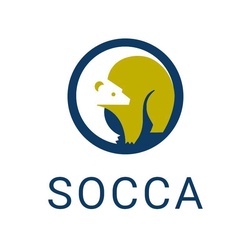
Grant and FundingOpen
Aboriginal Business Financing Program - Private Project
Funds for First Nations entrepreneurs in Quebec
Eligible Funding
- Maximum amount : 99,000 $
- Up to 75% of project cost
Eligible Industries
- All industries
Types of eligible projects
Commercialization
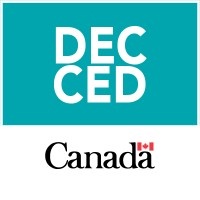
Grant and FundingOpen
CED — Regional Artificial Intelligence Initiative
Supports AI technology development and adoption by Canadian SMEs
Eligible Funding
- Up to 50% of project cost
Eligible Industries
- Agriculture, forestry, fishing and hunting
- Manufacturing
- Information and cultural industries
Types of eligible projects
CommercializationArtificial Intelligence (AI)

Grant and FundingOpen
CanExport Innovation
Trade Commissioner Service (TCS), Global Affairs Canada (GAC), National Research Council Canada (NRC), Government of Canada
Supports Canadian R&D partnerships with international partners
Eligible Funding
- Maximum amount : 75,000 $
- Up to 75% of project cost
Eligible Industries
- All industries
Types of eligible projects
CommercializationTechnologyInnovation

Grant and FundingExpert AdviceClosed
Starter Company Plus
Supports Toronto entrepreneurs with training, mentorship, and business funding
Eligible Funding
- Maximum amount : 5,000 $
- Up to 25% of project cost
Eligible Industries
- Manufacturing
- Retail trade
- Information and cultural industries
- Professional, scientific and technical services
Types of eligible projects
CommercializationBusiness Buyout

Expert AdviceOpen
Ontario Food Exports — Services for Exporters
Government of Ontario, Agriculture and Agri-Food Canada (AAFC), Ontario Ministry of Agriculture, Food and Agribusiness (OMAFRA)
Food and beverage industry export help in Ontario
Eligible Funding
- No Condition
Eligible Industries
- Agriculture, forestry, fishing and hunting
- Manufacturing
- Wholesale trade
Types of eligible projects
Commercialization

Grant and FundingClosed
Support program for positioning Quebec alcohol in the SAQ network
Supports Quebec alcoholic beverage producers in the SAQ network
Eligible Funding
- Maximum amount : 1,950,000 $
- Up to 70% of project cost
Eligible Industries
- Manufacturing
- Retail trade
- Accommodation and food services
Types of eligible projects
Commercialization

Loans and Capital investmentsOpen
Canada Small Business Financing Loan (CSBFL)
Canadian program improves small business financing access
Eligible Funding
- Maximum amount : 1,000,000 $
Eligible Industries
- All industries
Types of eligible projects
CommercializationConstruction and Renovation Human Resources

Other SupportOpen
CCC — Global Bid Opportunity Finder (GBOF)
Discover opportunities with governments around the world
Eligible Funding
- No Condition
Eligible Industries
- All industries
Types of eligible projects
Commercialization

Partnering and CollaborationExpert AdviceClosed
Stade V
Accelerator program for Quebec-based tech startups seeking growth
Eligible Funding
- Up to 65% of project cost
Eligible Industries
- All industries
Types of eligible projects
CommercializationTechnologyInnovation
Find tailored funding for your business
Discover more grants on the helloDarwin platform
Look through over 4,000 grants, tax credits, loans and more financial aid on the helloDarwin application.

Grant and FundingOpen
SODEC — Support for promotion and distribution – Component 1b
Promotes and distributes Quebecois and underrepresented foreign films
Eligible Funding
- Maximum amount : 50,000 $
- Up to 80% of project cost
Eligible Industries
- Information and cultural industries
Types of eligible projects
Commercialization

Grant and FundingClosed
MAPAQ — Ministerial initiative Proximity — Component 1
Supporting Quebec's collective market and agritourism initiatives
Eligible Funding
- From $7,000 to $50,000
- Up to 70% of project cost
Eligible Industries
- Agriculture, forestry, fishing and hunting
Types of eligible projects
Commercialization

Eligible Funding
- From $100,000 to $350,000
- Up to 40% of project cost
Eligible Industries
- Agriculture, forestry, fishing and hunting
- Manufacturing
- Administrative and support, waste management and remediation services
- Health care and social assistance
Types of eligible projects
CommercializationTechnologyInnovation

Grant and FundingOpen
Regional defence investment initiative (RDII) – Quebec
Supports Quebec organizations integrating into domestic and international defence supply chains
Eligible Funding
- Up to 90% of project cost
Eligible Industries
- Manufacturing
- Professional, scientific and technical services
- Public administration
Types of eligible projects
CommercializationInnovation

Grant and FundingOpen
Capitale-Innovation
Supports business innovation, commercialization, and market expansion projects
Eligible Funding
- Maximum amount : 150,000 $
- Up to 50% of project cost
Eligible Industries
- Agriculture, forestry, fishing and hunting
- Manufacturing
- Information and cultural industries
- Finance and insurance
Types of eligible projects
CommercializationArtificial Intelligence (AI)TechnologyEnvironment and ClimateInnovation

Grant and FundingClosed
Acting to support growth
Financial support for Montréal non-profits advancing business growth
Eligible Funding
- Maximum amount : 270,000 $
Eligible Industries
- Other services (except public administration)
- Public administration
Types of eligible projects
CommercializationEnvironment and ClimateInnovation

Grant and FundingClosed
MAPAQ — Food Processing Program Component 3 — Food quality and safety management
Funding nutritious food development projects in Québec businesses
Eligible Funding
- From $7,500 to $150,000
- Up to 50% of project cost
Eligible Industries
- Manufacturing
Types of eligible projects
CommercializationTechnologyEnvironment and ClimateHuman ResourcesBusiness BuyoutInnovation

Grant and FundingOpen
Capitale-Commerce
Financial support for commercial projects improving business offerings
Eligible Funding
- From $5,000 to $75,000
- Up to 50% of project cost
Eligible Industries
- All industries
Types of eligible projects
CommercializationTechnology

Partnering and CollaborationGrant and FundingClosed
CELTIC-NEXT – Next Generation Communications Autumn 2025 call for proposals
Funding for collaborative ICT R&D projects for Canadian SMEs
Eligible Funding
- No Condition
Eligible Industries
- Information and cultural industries
- Professional, scientific and technical services
Types of eligible projects
CommercializationTechnologyInnovation

Grant and FundingClosed
MAPAQ — Ministerial initiative Proximity — Component 2
Supports local market initiatives and agrotourism in Quebec
Eligible Funding
- From $5,000 to $50,000
- Up to 50% of project cost
Eligible Industries
- Agriculture, forestry, fishing and hunting
- Manufacturing
Types of eligible projects
Commercialization
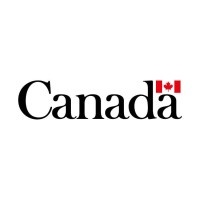
Grant and FundingLoans and Capital investmentsClosed
Regional Defence Investment Initiative in Southern Ontario
Funding initiative supporting southern Ontario defence sector growth
Eligible Funding
- From $125,000 to $10,000,000
Eligible Industries
- Public administration
Types of eligible projects
CommercializationTechnologyInnovation
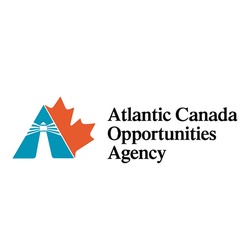
Grant and FundingClosed
Regional Tariff Response Initiative (RTRI) – Atlantic Canada
Supports Atlantic Canadian SMEs impacted by international trade tariffs
Eligible Funding
- Maximum amount : 1,000,000 $
- Up to 25% of project cost
Eligible Industries
- Manufacturing
- Wholesale trade
- Transportation and warehousing
- Other services (except public administration)
Types of eligible projects
CommercializationTechnologyInnovationDigital Transformation

Grant and FundingOpen
REGI — Business Scale-up and Productivity — CED (QC) — Not-for-profit
Funding for business innovation and growth through CERI program
Eligible Funding
- Up to 50% of project cost
Eligible Industries
- Manufacturing
- Information and cultural industries
Types of eligible projects
CommercializationInnovationDigital Transformation

Grant and FundingClosed
Regional Tariff Response Initiative (RTRI) — Quebec
Support for Quebec manufacturing SMEs impacted by international tariffs
Eligible Funding
- From $100,000 to $1,000,000
- Up to 50% of project cost
Eligible Industries
- Manufacturing
Types of eligible projects
CommercializationTechnologyDigital Transformation

Grant and FundingOpen
Social Economy Support Fund
Non-repayable financial aid supporting social economy projects in Mauricie
Eligible Funding
- Maximum amount : 20,000 $
- Up to 80% of project cost
Eligible Industries
- Information and cultural industries
- Educational services
- Health care and social assistance
- Arts, entertainment and recreation
Types of eligible projects
CommercializationInnovationDigital Transformation

Eligible Funding
- From $2,500 to $40,000
Eligible Industries
- Information and cultural industries
- Arts, entertainment and recreation
Types of eligible projects
Commercialization

Grant and FundingClosed
Global Market Development Fund — Film and Television
Funding for international activities for Ontario production companies
Eligible Funding
- Maximum amount : 15,000 $
- Up to 50% of project cost
Eligible Industries
- Information and cultural industries
Types of eligible projects
Commercialization

Grant and FundingClosed
Global Market Development — IDM Fund
Funding for global growth of Ontario digital media companies
Eligible Funding
- Maximum amount : 15,000 $
- Up to 50% of project cost
Eligible Industries
- Information and cultural industries
- Arts, entertainment and recreation
Types of eligible projects
Commercialization

Grant and FundingClosed
Global Market Development for Music Managers
Money for music management companies
Eligible Funding
- Maximum amount : 10,000 $
- Up to 50% of project cost
Eligible Industries
- Information and cultural industries
Types of eligible projects
Commercialization

Grant and FundingClosed
Canada Periodical Fund — Business Innovation
Funding for innovation in periodical publishing
Eligible Funding
- Maximum amount : 500,000 $
- Up to 75% of project cost
Eligible Industries
- Information and cultural industries
Types of eligible projects
CommercializationTechnologyInnovationDigital Transformation

Grant and FundingClosed
Global Market Development Fund – Book
Money for Ontario export-ready book publishers
Eligible Funding
- Maximum amount : 15,000 $
- Up to 50% of project cost
Eligible Industries
- Information and cultural industries
Types of eligible projects
Commercialization

Loans and Capital investmentsOpen
Regional Economic Growth through Innovation (REGI) — Business Scale-up and Productivity — ACOA
Financing to accelerate growth in Atlantic Canada
Eligible Funding
- No Condition
Eligible Industries
- Manufacturing
- Information and cultural industries
- Arts, entertainment and recreation
Types of eligible projects
CommercializationHuman ResourcesInnovation

Other SupportExpert AdviceOpen
ExploreIP
Find Intellectual Property available for licensing or collaboration
Eligible Funding
- No Condition
Eligible Industries
- All industries
Types of eligible projects
Commercialization

Grant and FundingOpen
Support program for economic development projects (PAPDE) — Component 2 : Support for the development of strategic sectors and regions
Support the economic development of strategic sectors and regions
Eligible Funding
- Maximum amount : 1,000,000 $
- Up to 60% of project cost
Eligible Industries
- Manufacturing
- Information and cultural industries
- Professional, scientific and technical services
- Educational services
Types of eligible projects
CommercializationTechnologyInnovationDigital Transformation

Grant and FundingOpen
FedDev Ontario — Economic Development Initiative (Southern Ontario) — Not-For-Profit
Assistance for Francophone projects in southern Ontario
Eligible Funding
- No Condition
Eligible Industries
- Manufacturing
- Information and cultural industries
- Educational services
- Health care and social assistance
Types of eligible projects
CommercializationInnovation
Access over 10 000 different funding opportunities
Try the helloDarwin platform today and find programs that fit your needs
The helloDarwin application makes it easy to unlock grants so your business can grow faster—with less hassle and more impact.

Grant and FundingClosed
Musicaction - Global Funding Envelope – Support Program
Canadian Music Fund supports career development for Canadian artists
Eligible Funding
- Maximum amount : 600,000 $
- Up to 50% of project cost
Eligible Industries
- Arts, entertainment and recreation
Types of eligible projects
Commercialization

Grant and FundingClosed
Music management and publishing assistance
Supports Quebec music managers and publishers in career development
Eligible Funding
- Maximum amount : 120,000 $
Eligible Industries
- Information and cultural industries
- Arts, entertainment and recreation
Types of eligible projects
Commercialization

Grant and FundingOpen
Innovative Solutions Canada — Challenge Stream for innovators
Supports Canadian SMEs developing innovative solutions for government challenges
Eligible Funding
- Maximum amount : 2,000,000 $
Eligible Industries
- All industries
Types of eligible projects
CommercializationTechnologyInnovation

Grant and FundingClosed
CMF — Innovation & Experimentation Program
Canadian digital media innovation and experimentation funding program
Eligible Funding
- Maximum amount : 1,500,000 $
- Up to 75% of project cost
Eligible Industries
- Information and cultural industries
Types of eligible projects
CommercializationTechnologyInnovation

Grant and FundingClosed
SODEC — Support for book and publishing companies – Component 1
Support for Quebec book and publishing companies
Eligible Funding
- Maximum amount : 200,000 $
Eligible Industries
- Information and cultural industries
Types of eligible projects
Commercialization

Grant and FundingOpen
Regional Artificial Intelligence Initiative (RAII) for Northern Ontario
Funding AI commercialization and adoption in Northern Ontario businesses
Eligible Funding
- Up to 75% of project cost
Eligible Industries
- Agriculture, forestry, fishing and hunting
- Mining, quarrying, and oil and gas extraction
- Manufacturing
- Health care and social assistance
Types of eligible projects
CommercializationArtificial Intelligence (AI)

Eligible Funding
- No Condition
Eligible Industries
- All industries
Types of eligible projects
Commercialization

Grant and FundingClosed
Promotional assistance for music and entertainment companies
Supports promotion and marketing for Quebec music and entertainment companies
Eligible Funding
- Maximum amount : 400,000 $
- Up to 100% of project cost
Eligible Industries
- Information and cultural industries
- Arts, entertainment and recreation
Types of eligible projects
Commercialization

Grant and FundingOpen
Entrepreneurial grant
Supports new business creation and structured business succession in Québec
Eligible Funding
- Maximum amount : 25,000 $
- Up to 50% of project cost
Eligible Industries
- Agriculture, forestry, fishing and hunting
- Manufacturing
- Information and cultural industries
- Finance and insurance
Types of eligible projects
CommercializationArtificial Intelligence (AI)TechnologyEnvironment and ClimateHuman ResourcesBusiness BuyoutInnovation

Grant and FundingClosed
INVEST North Program — Investment — Grow Stream
Financial help to grow a business in Northern Ontario
Eligible Funding
- Maximum amount : 1,000,000 $
- Up to 50% of project cost
Eligible Industries
- Construction
- Manufacturing
- Information and cultural industries
- Professional, scientific and technical services
Types of eligible projects
CommercializationTechnologyConstruction and Renovation
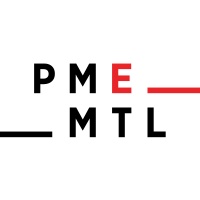
Grant and FundingClosed
Le Fonds d’initiatives locales (FIL) Village
Financial support for local socio-economic and cultural projects
Eligible Funding
- Maximum amount : 50,000 $
Eligible Industries
- Retail trade
- Information and cultural industries
- Arts, entertainment and recreation
- Other services (except public administration)
Types of eligible projects
CommercializationEnvironment and ClimateHuman ResourcesInnovation

Grant and FundingOpen
FedDev — Funding for southern Ontario
Funding for businesses in southern Ontario by FedDev Ontario.
Eligible Funding
- From $125,000 to $10,000,000
Eligible Industries
- Manufacturing
- Information and cultural industries
- Professional, scientific and technical services
- Health care and social assistance
Types of eligible projects
CommercializationArtificial Intelligence (AI)TechnologyEnvironment and ClimateInnovation
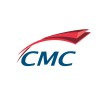
Researchers And FacilitiesPartnering and CollaborationGrant and FundingOpenClosing Soon
Fabrication Process Development Challenge
Supports development and commercialization of Canadian semiconductor fabrication processes
Eligible Funding
- From $200,000 to $1,500,000
- Up to 40% of project cost
Eligible Industries
- Manufacturing
- Information and cultural industries
- Professional, scientific and technical services
- Educational services
Types of eligible projects
CommercializationTechnologyInnovation

Loans and Capital investmentsOpen
Business Scale-up and Productivity (BSP) in the Prairie provinces
Repayable support for prairie high-growth business scale-up
Eligible Funding
- From $200,000 to $10,000,000
- Up to 50% of project cost
Eligible Industries
- Agriculture, forestry, fishing and hunting
- Mining, quarrying, and oil and gas extraction
- Manufacturing
- Information and cultural industries
Types of eligible projects
CommercializationTechnologyInnovation

Loans and Capital investmentsClosed
Call for investments VRQ
Supports Quebec research-based startups in early-stage company development
Eligible Funding
- Maximum amount : 150,000 $
- Up to 25% of project cost
Eligible Industries
- Professional, scientific and technical services
- Educational services
- Health care and social assistance
Types of eligible projects
CommercializationTechnologyInnovation

Grant and FundingOpen
Technology Maturation Program – PSOv2d
Supports technology development and validation for Quebec research institutions
Eligible Funding
- Maximum amount : 475,000 $
- Up to 80% of project cost
Eligible Industries
- Professional, scientific and technical services
- Educational services
Types of eligible projects
CommercializationTechnologyInnovation

Eligible Funding
- From $5,000 to $150,000
Eligible Industries
- All industries
Types of eligible projects
CommercializationHuman ResourcesInnovation

Grant and FundingOpen
Support for commercial arteries — Component 1 - Support for urban revitalization projects
Supports urban revitalization and commercial sector animation initiatives
Eligible Funding
- Maximum amount : 25,000 $
- Up to 65% of project cost
Eligible Industries
- All industries
Types of eligible projects
CommercializationInnovation

Grant and FundingExpert AdviceLoans and Capital investmentsClosed
PME MTL — Call for projects : Innovation
Supports innovative business projects accelerating technology adoption in Montréal
Eligible Funding
- Maximum amount : 50,000 $
- Up to 80% of project cost
Eligible Industries
- Manufacturing
- Information and cultural industries
- Professional, scientific and technical services
- Educational services
Types of eligible projects
CommercializationArtificial Intelligence (AI)TechnologyInnovation

Grant and FundingWage Subsidies And InternsClosed
Canada Book Fund - Support for Organizations
Supports marketing and infrastructure for Canadian book organizations
Eligible Funding
- No Condition
Eligible Industries
- Information and cultural industries
Types of eligible projects
CommercializationTechnologyHuman Resources
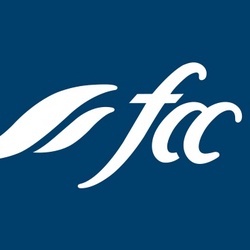
Loans and Capital investmentsOpen
Trade Disruption Customer Support program
Financial support for Canadian agriculture facing trade disruptions
Eligible Funding
- No Condition
Eligible Industries
- All industries
Types of eligible projects
Commercialization

Grant and FundingClosed
Call for projects – Technology showcase
Supports Sherbrooke businesses showcasing innovative industrial technologies
Eligible Funding
- Maximum amount : 30,000 $
- Up to 50% of project cost
Eligible Industries
- Manufacturing
- Information and cultural industries
- Professional, scientific and technical services
- Health care and social assistance
Types of eligible projects
CommercializationTechnologyInnovation

Grant and FundingClosed
Cyber Security Innovation Network
Supports pan-Canadian cyber security research, commercialization, and talent development
Eligible Funding
- Up to 50% of project cost
Eligible Industries
- Professional, scientific and technical services
- Educational services
Types of eligible projects
CommercializationTechnologyHuman ResourcesInnovation

Grant and FundingSuspended
Innovation Program — Stream 1 – Support for mobilising projects
Transport technology innovation projects funding in Quebec
Eligible Funding
- From $4,000,000 to $10
- Up to 50% of project cost
Eligible Industries
- Transportation and warehousing
Types of eligible projects
CommercializationArtificial Intelligence (AI)TechnologyEnvironment and ClimateInnovation

Researchers And FacilitiesPartnering and CollaborationGrant and FundingOpen
Innovation continuum
Supports innovation development and commercialization in Quebec’s strategic sectors
Eligible Funding
- No Condition
Eligible Industries
- Professional, scientific and technical services
- Educational services
Types of eligible projects
CommercializationTechnologyInnovation
Frequently asked questions about commercialization grants and funding
What are commercialization grants?
Who can apply for commercialization grants?
What costs are covered by these grants?
How much funding can I expect?
How do I apply for a grant?
What are the common challenges in obtaining grants?
Can grants be combined with other funding?
What sectors are prioritized for commercialization grants?
How do grants support sustainability?
What is the role of market research in commercialization grants?
What else should I know about Commercialization Grants in Canada for 2026?
Explore related grant directories
By Service
Business Expansion Grants
Business Expansion Grants in Alberta
Business Expansion Grants in British Columbia
Commercialization Grants and Funding in British Columbia in 2026